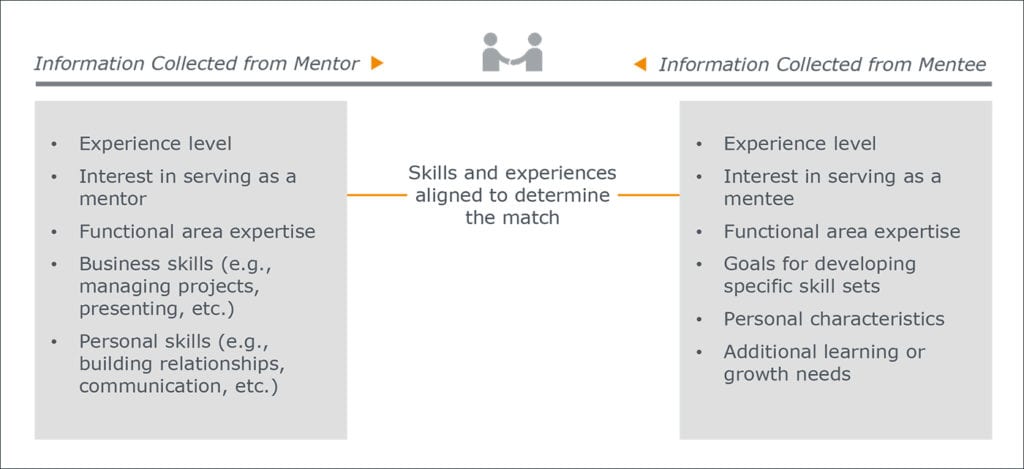Creating an Outcomes-Oriented Mentoring Program
When the Advancement Forum asked major gift officers to list and evaluate the important factors that led them to join their current institution, nearly 80% ranked professional development as either important or very important edging out financial compensation (77%) and office culture (73%). This result begs the question: What strategies are you enacting to ensure that major gift officers continue to feel that professional development opportunities are available?
Peer-to-peer mentoring programs are low-cost opportunities to provide professional development. Junior or high-potential staff members receive crucial guidance while tenure, high-performing members develop leadership skills. Emphasizing mentorship also sends a message that your organization is willing to invest time and resources to help employees succeed in their careers. However, unclear mentoring expectations often result in a professional development relationship that devolves into a series of one-off conversations over coffee or a meal that are not effective and do not achieve their intended outcome.
Current mentoring practices produce low ROI
-
Mentor
- Not sure where to focus mentorship relationship
- Feels like time is misused
- Fails to prove management prowess
-
Mentee
- Asks manager and mentor same questions
- Unsure of how to use the relationship
- Disappointed by the program
Advancement shops who are seeking to proactively improve their mentoring program can do so by ensuring that the mentoring program has the following components:
-
Clear expectations for mentee and mentor
Documents outline expectations for mentor and mentee across a timeline
-
Defined checkpoint activities
Include specific questions and activities across the set duration of the mentorship
-
Candid and private conversations
Mentors and mentees meet away from campus and do not share reporting lines to allow open discussions
-
Specific skill development and career guidance objectives
Mentors ask mentees questions about job satisfaction, relationship with their supervisor, and career plans
Taking an outcomes-oriented approach to mentoring programs
Beyond the component parts, some forward-thinking institutions are considering enhancements to their traditional mentoring program. The University of Michigan is one example of an advancement shop that has refined its approach to mentoring. Rather than simply pairing senior-level mentors with junior-level mentees based upon their mutual backgrounds for an unspecified length of time, they instead create a scoped, six-month mentorship relationship based off the skill gaps and goals of the mentee and the experience and skills of the mentor.
Creating mentorship matches at the University of Michigan

Managers at the University of Michigan nominate MGOs to take part in the program and every nominated MGO is paired with a mentor. When managers nominate their direct reports, they are also asked if they would be willing to serve as a mentor on the nomination form.
Once nominated, mentees are asked to complete an application in order to participate in the program. The application process requires mentees to define the skillsets that they would like to focus on in working with a mentor—professional knowledge, general business skills, or personal skills. More importantly mentees are also asked to set an initial goal that relates to the skillset(s) they wish to develop during the mentorship.
Mentors are also required to complete an application that requires them to share why they are interested in serving as a mentor. In addition mentors are asked to highlight their professional knowledge and skills, general business skills such as managing projects or time management, and personal skills such as building relationships, effective communications, and listening skills. Mentor-mentee matches are then made based on the information collected in the applications.
The program begins with an orientation that includes breakout sessions for mentors and mentees. The mentors share best practices, discuss mentorship strategies, and determine how to support mentees during the process. The mentees focus on how they can learn the most from their mentors. There are no expectations for mentors to do anything beyond meeting for at least two hours per month over a six-month period.
At the conclusion of the six months they hold a closing ceremony for participants and from that point forward, the mentee and mentor have the discretion to continue the mentorship informally.
This resource requires EAB partnership access to view.
Access the research report
Learn how you can get access to this resource as well as hands-on support from our experts through Advancement Advisory Services.
Learn More